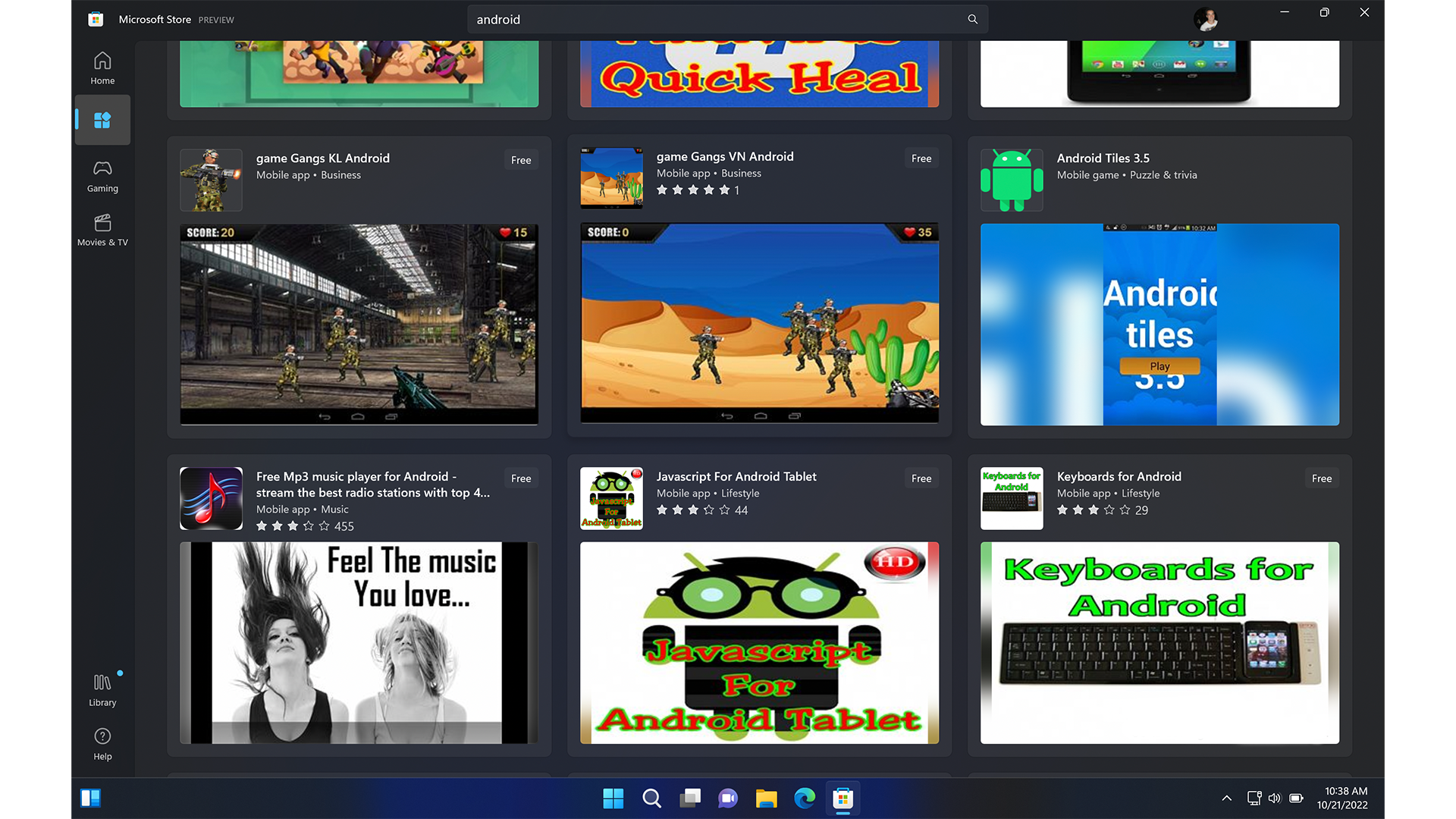Android apps have been available to test on Windows 11 for most of 2022, and Microsoft has been working hard to improve the experience throughout that time. Not only did a Windows 11 update make Android apps faster last month, but the latest version of the OS, Android 13 ‘Tiramisu’, is in development to be rolled out in future.
The latter update will be a welcome one; the ‘Future Roadmap’ section of Microsoft’s GitHub page (opens in new tab) lists ‘File Transfer’, ‘Local Network Access’ and a bunch more improvements, all of which will give Android apps new smarts when used on Windows.
Yet while it’s great that Microsoft is improving the Android experience on PC, I’m still not tempted to try it out on a desktop myself. Why? Well it mainly comes down to the terrible apps that are overflowing the Microsoft Store; in short, the company has a growing problem in this area that needs to be solved soon.
Passing on the Tiramisu for now

The above image exemplifies why I’ve not been keen to try out Android apps in Windows 11. Junk apps are all over the Microsoft Store, and even though the roadmap in Microsoft’s GitHub page could attract other developers to create or update their apps for Windows 11, it feels like a pointless endeavor.
The Store is full of apps that don’t do what they say. Granted, this is due to the Android apps being pulled in from Amazon’s App Store, where anyone can upload an app, rather than from the Google Play Store, but surely Microsoft could have a team to at least approve or reject the apps that it includes in its own Store.
Instead, we’ve got a situation where the idea of Android apps on Windows sounds great, but where the execution is lousy. And as a result, we now have a redesigned Microsoft Store that was useful a year ago, but which is now full of junk Android apps.
If Microsoft wants Windows 11 to be useful and safe for everyone – and presumably it does – it needs to do better. Until then, the Android experience on PC will remain a frustrating work in progress.




